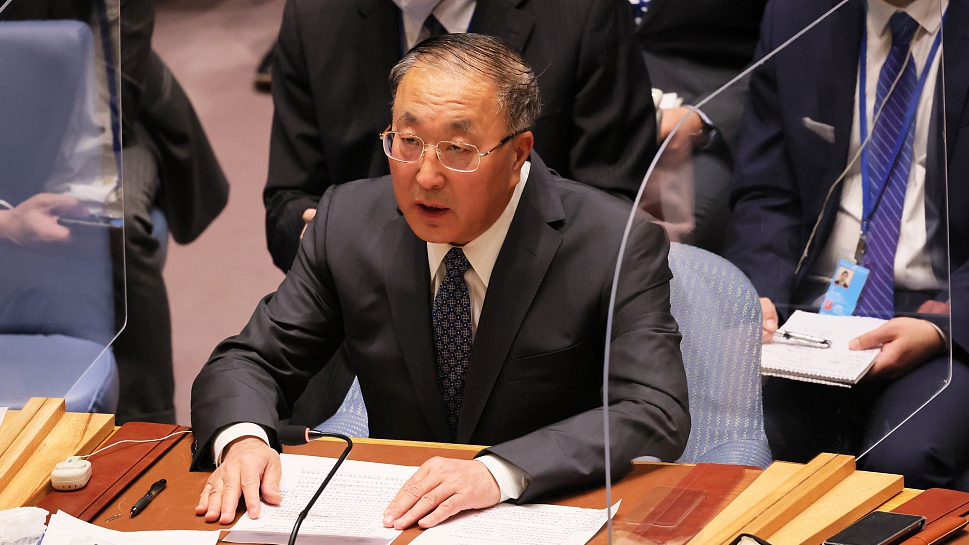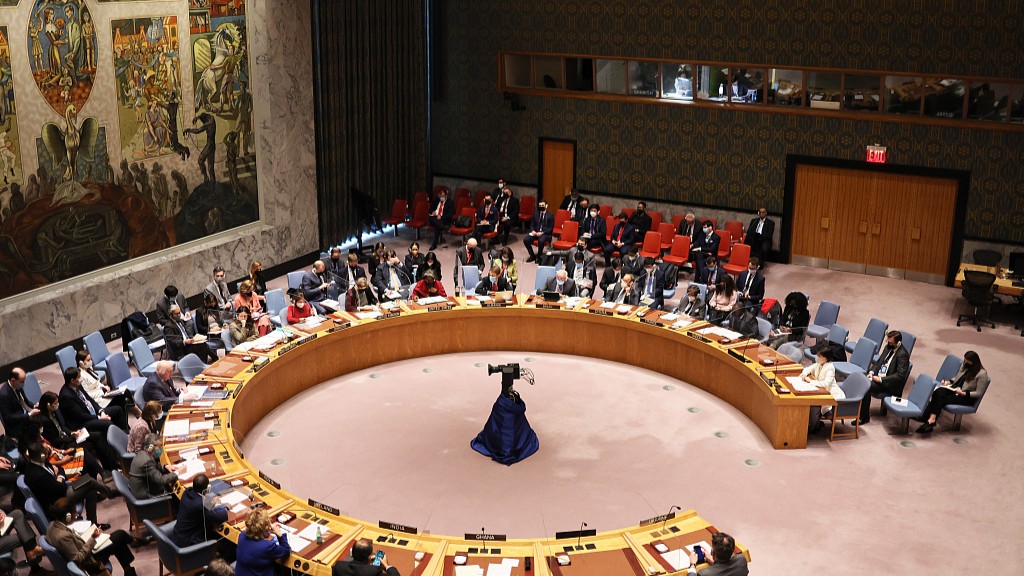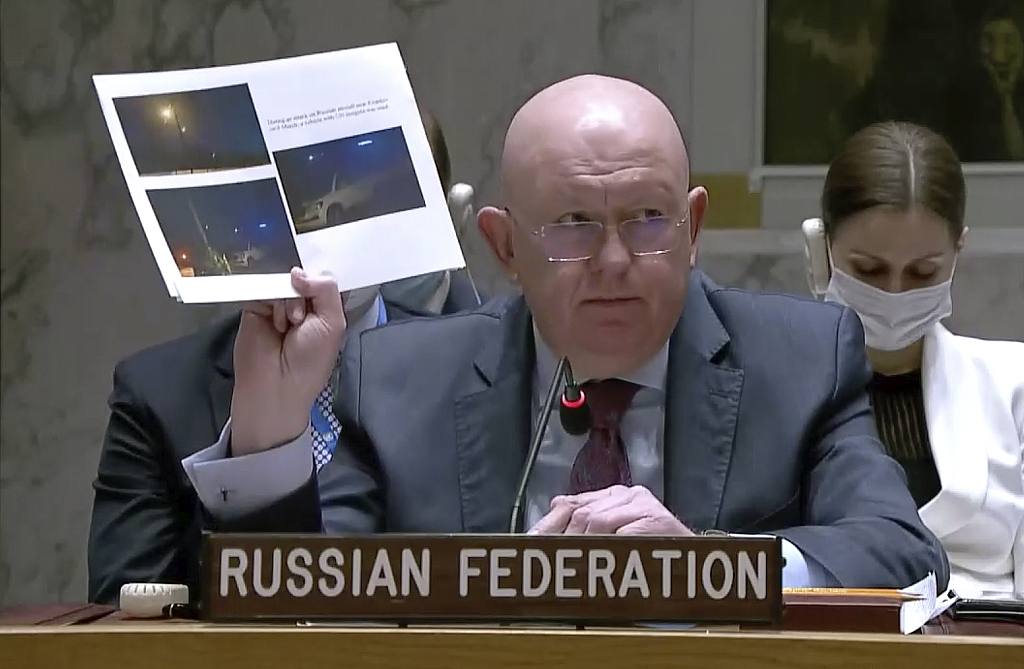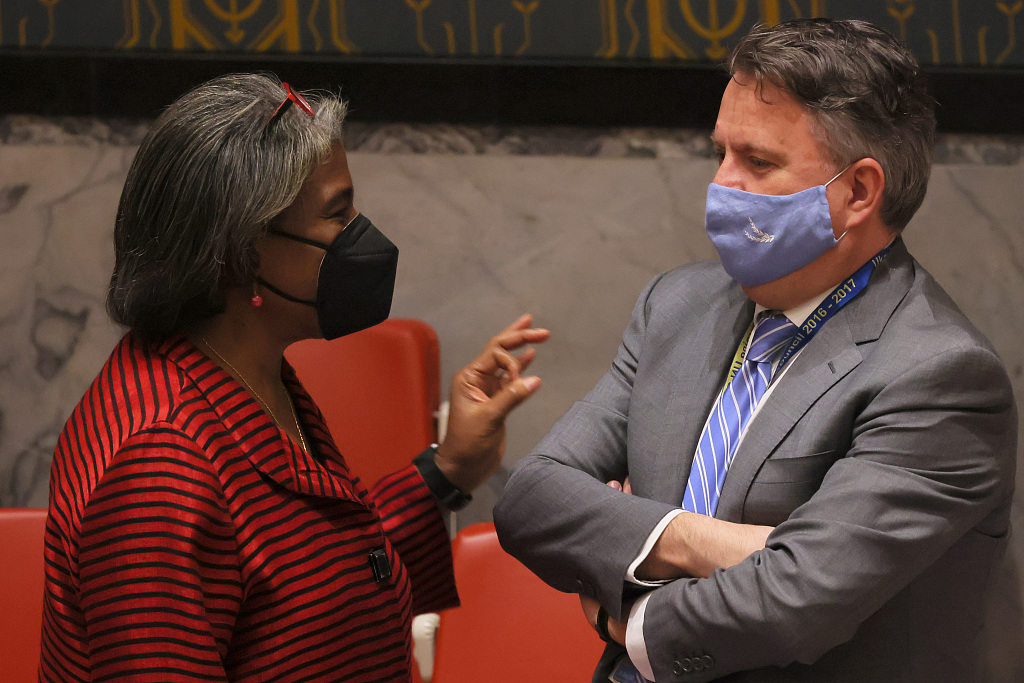01:15

China firmly opposes the development, possession and use of biological and chemical weapons by any country under any circumstances, Zhang Jun, China's permanent representative to the United Nations, said at a briefing session on biological security in Ukraine at the UN Security Council on Friday.
Zhang reiterated China's support for the "complete prohibition and thorough destruction" of all weapons of mass destruction, including biological and chemical weapons. He urged countries that "have not yet destroyed their stockpiles of chemical weapons to do so as soon as possible."
The Security Council convened the session at Russia's request to discuss alleged military biological research by the U.S. in Ukraine. Russia said there is a network of biological laboratories in Ukraine working on behalf of the U.S. Department of Defense that forms part of America's biological weapons program.
Washington has dismissed the accusation as "laughable," suggesting that Russia may be laying the groundwork to use a chemical or biological weapon. But U.S. Undersecretary of State for Political Affairs Victoria Nuland on Tuesday acknowledged that "Ukraine has biological research facilities."
Read more:
Russia reveals evidence of U.S.-funded bio-program in Ukraine
China urges U.S. to disclose more details about biolabs in Ukraine
The Biden administration must clarify status of biolabs in Ukraine for greater transparency
01:22

"China has noted with concern relevant information released by Russia," Zhang said. "The concerns raised by Russia should be properly addressed."
China urges relevant parties to "provide a comprehensive clarification and accept multilateral verification," he said.
"We look forward to receiving more specific information on this," he added.
Vassily Nebenzia, Russia's permanent representative to the UN, said a network of about 30 biological laboratories in Ukraine was involved in amplifying pathogenic features of deadly diseases.
"The work has been funded and directly supervised by the Defense Threat Reduction Agency at the [U.S.] Department of Defense, including on behalf of the National Center for Medical Intelligence at the Department of Defense," Nebenzia said.
"Some documents came into possession of the Russian Defense Ministry," he told the Security Council.

Vasily Nebenzia, Russia's permanent representative to the United Nations, holds up copies of photos during a briefing session on biological security in Ukraine at the UN Security Council in New York, U.S., March 11, 2022. /CFP
Vasily Nebenzia, Russia's permanent representative to the United Nations, holds up copies of photos during a briefing session on biological security in Ukraine at the UN Security Council in New York, U.S., March 11, 2022. /CFP
The Russian envoy warned that materials from these laboratories could be stolen and used for terrorist purposes.
He also accused Kyiv of "hastily covering its tracks" by scrapping biological programs at the request of the West.
The U.S. envoy to the UN, Linda Thomas-Greenfield, said Washington was "deeply concerned" that Russia called the session as a "false flag effort" to lay the groundwork for its own use of biological or chemical weapons in Ukraine. But she did not provide evidence of an imminent Russian threat.
Izumi Nakamitsu, the UN High Representative for Disarmament Affairs, said the United Nations is "not aware" of any biological weapons program in Ukraine, which joined an international ban on such arms, as have Russia and the United States along with 180 other countries.
Under a 2005 agreement, the Pentagon has assisted several Ukrainian public health laboratories with improving the security of dangerous pathogens and technology used to research.

U.S. Ambassador to the UN Linda Thomas-Greenfield (L) talks with Sergiy Kyslytsya, Ukraine's permanent representative to the UN, before a briefing session on biological security in Ukraine at the UN Security Council in New York, U.S., March 11, 2022. /CFP
U.S. Ambassador to the UN Linda Thomas-Greenfield (L) talks with Sergiy Kyslytsya, Ukraine's permanent representative to the UN, before a briefing session on biological security in Ukraine at the UN Security Council in New York, U.S., March 11, 2022. /CFP
Zhang also called for intensified diplomatic efforts to "bring the Ukrainian issue back to the track of political settlement" and prevent a "large-scale humanitarian crisis."
Russia and Ukraine have held three rounds of peace talks and a meeting between their foreign ministers since Moscow launched a "special military operation" in Ukraine on February 24, without achieving a major breakthrough.
(Cover: Zhang Jun, China's permanent representative to the United Nations, speaks at a briefing session on biological security in Ukraine at the UN Security Council in New York, U.S., March 11, 2022. /CFP)

